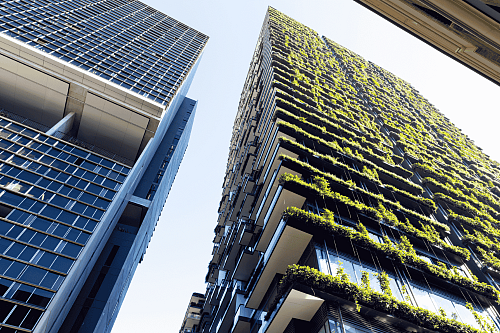
Holcim UAE Accelerates Sustainable Construction Drive Amid Market Expansion
Holcim UAE, formerly Lafarge Emirates Cement, is charting an ambitious growth path in the United Arab Emirates, underpinned by sustainability, innovation, and strategic expansion. The rebrand, announced this week, signals a deeper alignment with Holcim Group's global NextGen Growth 2030 strategy and the UAE's Net Zero 2050 vision.
“This rebrand is more than a name change-it's our platform to accelerate innovation, deepen partnerships, and advance sustainability across the built environment,” said Ali Said, CEO of Holcim UAE.“We're driving the transformation of the construction industry toward smarter, more resilient, and more sustainable practices.”
Recommended For YouHolcim UAE stands out as the only player in the market with fully integrated cement plants and concrete operations, managing the entire value chain from its quarry in Fujairah to job sites in Dubai. This integration enables the company to reduce its carbon footprint and develop advanced low-carbon mixes.
Two flagship products define Holcim's sustainability push: EcoPlanet, a branded low-carbon cement reducing CO2 emissions by at least 30%, and ECOPact, a low-carbon concrete achieving similar reductions. Depending on project specifications, these solutions can cut emissions by up to 70%. Holcim is also pioneering thermal insulation concrete for energy-efficient buildings and exploring 3D concrete printing technology.
Holcim's commitment to sustainable construction is evident in landmark UAE projects, including Al Shera'a – DEWA Headquarters, the world's largest net-zero-energy government building; Zuhha Island, built using 88% ECOPact concrete; and Etihad Rail, the national rail network constructed with Holcim's low-carbon solutions.
Currently supplying Dubai and Sharjah, Holcim plans to expand into Abu Dhabi and Dubai South, while enhancing its Fujairah plant to produce near-zero building materials.“The UAE is a strategic market for us,” said Said.“We're not increasing traditional cement output-we're investing in materials that support carbon reduction.”
Decarbonization and Innovation
Holcim UAE is tackling emissions across all scopes. For Scope 1, it uses over 40% alternative fuels, including industrial waste and byproducts, and incorporates construction and demolition waste as raw materials. For Scope 2, a waste heat recovery system at Fujairah will cut electricity use by 25%. For Scope 3, Holcim is partnering with Etihad Rail to reduce transport emissions.
One of its most ambitious projects is a carbon capture and mineralization initiative with climate-tech firm 44.01, leveraging Fujairah's ultramafic rock formations to permanently store CO2. The pilot is underway, with plans to scale significantly by 2030.
Holcim sees robust demand for sustainable materials as awareness grows among developers and consultants.“The UAE's visionary leadership and sustainability agenda perfectly align with our global roadmap,” said Said.“We're confident about the future and committed to shaping a smarter, more circular, and more sustainable built environment.”

Legal Disclaimer:
MENAFN provides the
information “as is” without warranty of any kind. We do not accept
any responsibility or liability for the accuracy, content, images,
videos, licenses, completeness, legality, or reliability of the information
contained in this article. If you have any complaints or copyright
issues related to this article, kindly contact the provider above.


















Comments
No comment